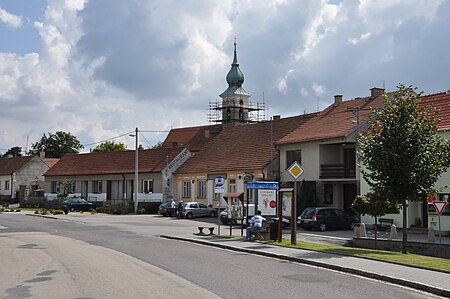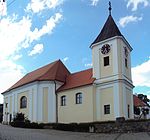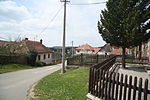The Czechoslovakian Grand Prix (Czech: Velká cena Československa; Slovak: Československá Grand Prix) was a Grand Prix motor racing event held in 1949 at the Masaryk Circuit now referred to as the Brno Circuit. It was held in the town of Brno in Czechoslovakia (now the Czech Republic).
The Masaryk circuit race was first held on September 28, 1930. From 1934 onwards, the race was dominated by the German Silver Arrows. In 1937, several spectators were killed or injured when Hermann Lang skidded off the track. The spectators had been in a prohibited area but Lang was sued anyway.
Due to the German occupation in 1938 the race was discontinued until 1949 when the Masaryk Circuit was shortened to 17.8 km (11.1 mi).
The 1949 Czechoslovakian Grand Prix raced in the opposite direction than the pre-war races, drew a crowd in excess of 400,000 people. The event was marred by the death of 2 drivers and 2 spectators. This would be the last Czechoslovakian Grand Prix.
27 years later a Czechoslovak Race was held at the same venue as a round of the European Touring Car Championship. BMW dominated for six years through various models before Jaguar asserted their own dominance. The race became part of the one-off 1987 World Touring Car Championship, but at a new venue, the newly constructed Brno Circuit. The race was won by the Swiss-based factory Ford team. A final race was held the following year as part of the World Sportscar Championship. The Sauber-Mercedes of Jochen Mass and Jean-Louis Schlesser prevented the Tom Walkinshaw team from claiming a fourth win for Jaguar.










